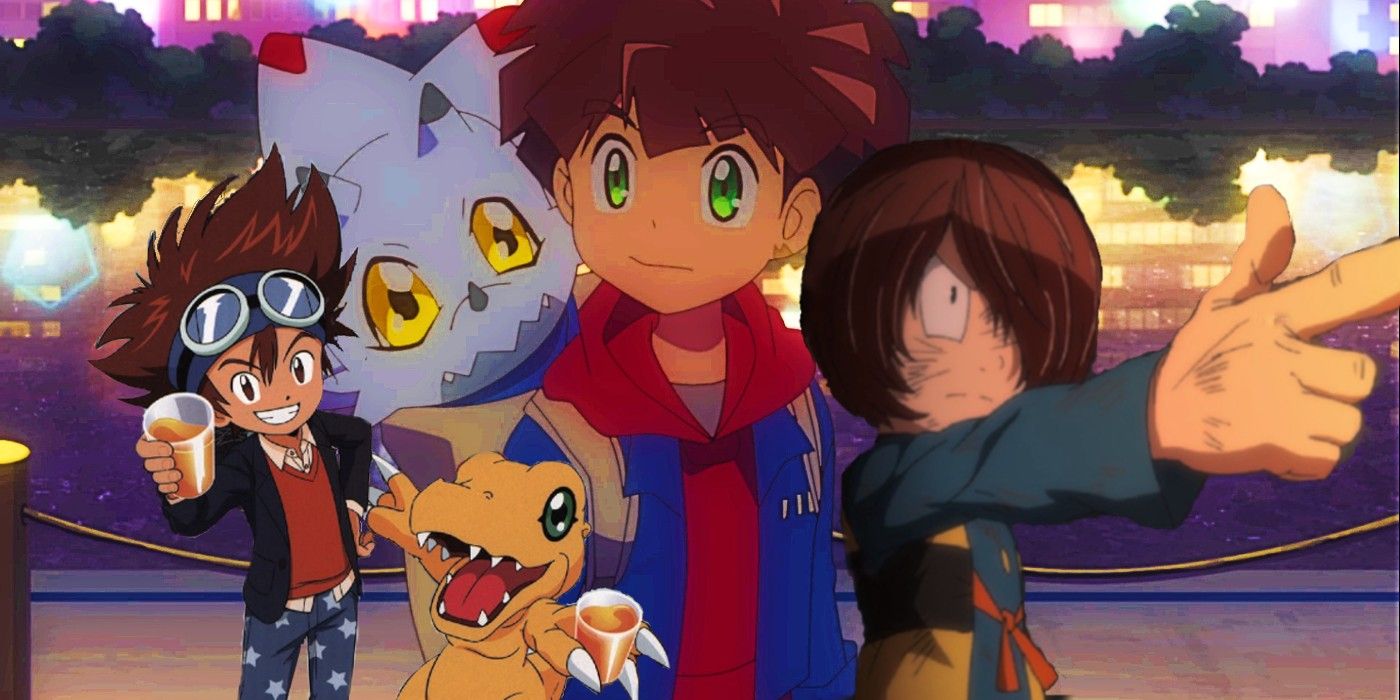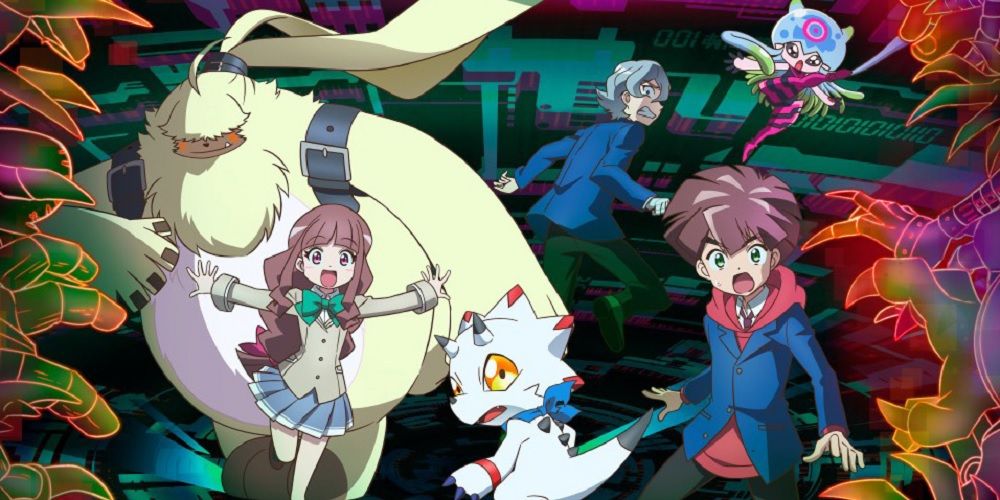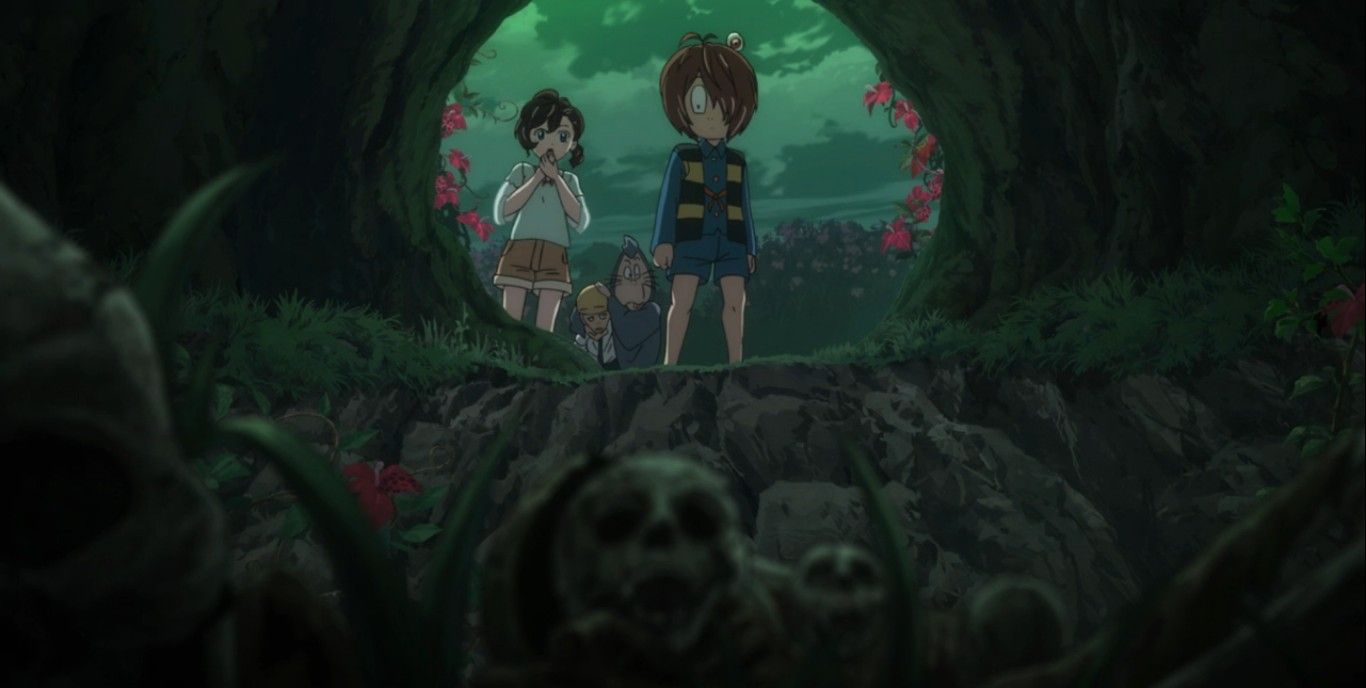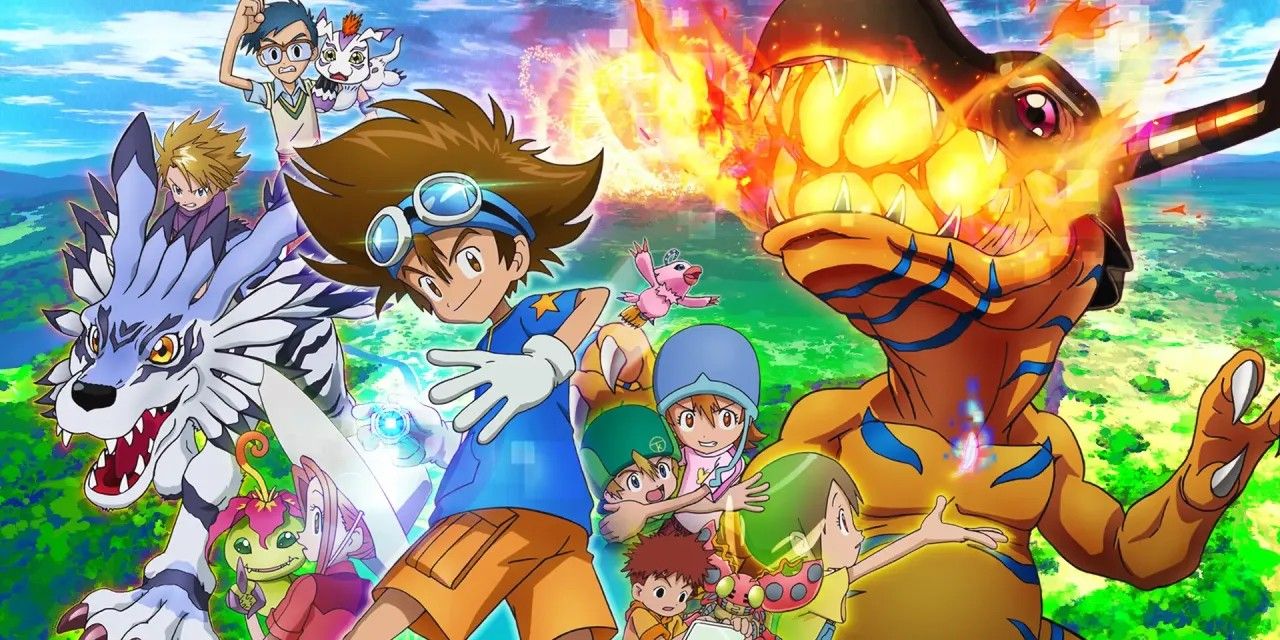With the conclusion of the Digimon Adventure 2020 reboot, the Digimon franchise has entered its ninth incarnation with Digimon Ghost Game. One of the most apparent aspects of this latest series is how it takes the franchise in an eerier direction than previous iterations. Turning to urban legends and horror stories, Ghost Game portrays Digimon as holographic ghosts that influence the human world. While it's clear that Ghost Game still follows certain tropes of the Digimon anime formula, it seems that Toei Animation may have borrowed features from another of its recent successes. Furthermore, production choices on Ghost Game may imply that Toei is attempting to renew fans' faith in the franchise after the lackluster performance of Adventure (2020).
Digimon Ghost Game incorporates a fair amount of mainstays from the Digimon recipe. The series still follows a group of children who team up with Digimon partners to fight dangerous foes. The narrative also continues to utilize a clear divide between the Digital and Human Worlds, as well as the use of Digivices to interact with them. However, for each callback that the show invokes, it innovates far more. Previous Digimon storylines have typically placed some sort of mechanical gimmick at the center of their operations to differentiate them from others. For example, Digimon Tamers used cards to power up their Digimon, while Digimon Frontier had children who merged with spirits to become Digimon themselves. While Ghost Game has the ploy of Digimon as paranormal beings, this seems to be a more thematic device than preceding entries. Additionally, the stakes of this season are decidedly more personal, as the story begins when the main character Hiro Amanokawa's father goes missing.
This focus on a supernatural world intersecting with everyday society seems to be inspired by another of Toei's most recent works. GeGeGe no Kitarou tells the story of a yokai boy named Kitarou and his friends as they go around resolving eerie otherworldly incidents. Toei's 2018 version in particular ties in themes such as human and yokai coexistence and the relationship between the supernatural and modern technology. All of these elements are present in Ghost Game's depiction of Digimon and the Digital World, with questions regarding the nature of their existence and evolution.
While GeGeGe no Kitarou had mysterious ongoing plotlines in the form of looming threats such as Nanashi, Backbeard, and the Four Treasonous Generals, Ghost Game is already hinting at similar running threads regarding the whereabouts of Hiro's father. Moreover, many of the strange occurrences in GeGeGe no Kitarou are either discovered by or gain power through rumors. This bears an uncanny tonal similarity to the formula of Ghost Game thus far, where Digimon are typically uncovered by word of mouth or online rumors. While these themes are far from original creations of either series, there is reason to believe that Toei Animation intentionally drew from GeGeGe no Kitarou when conceiving Ghost Game in the first place.
Digimon Ghost Game currently occupies Fuji TV's 9 AM Sunday morning slot, a broadcast block that is oriented towards shounen demographics between the ages of 12 and 18. Due to its positioning right before One Piece in the weekend lineup, this is a fairly coveted programming block. Previous occupants of the timeslot have included other Toei Animation works, such as Zatch Bell, Toriko, Dragon Ball Super, and numerous other Digimon series. Both the 2018 version of GeGeGe no Kitarou and Digimon Adveture (2020) have occupied this spot, showing that Ghost Game shares the same target audience as the two.
Ghost Game's sudden announcement and the premiere is peculiar, as it is the first Digimon series to do a direct back-to-back handoff with its predecessor in almost 20 years. Digimon Adventure (2020) ran from April 5, 2020, to September 26, 2021, with Ghost Game taking over the following week on October 3. While this was standard practice for the franchise up into its fourth series Digimon Frontier, the norm since then has been at least three years between iterations. This implies that Toei Animation had a clear idea of what direction they wanted to take with the intellectual property following Adventure (2020)'s conclusion.
Significantly, this means that they did not mind skipping over the interim where the series could have coasted on merchandise from Adventure (2020). Some fans found Adventure (2020) to be a disappointing reboot due to its meandering plot, lukewarm characterizations and rushed conclusions. One could infer that Toei is not only aware of Adventure (2020)'s underwhelming reception, but is attempting to gloss over it with a new series that integrates qualities from GeGeGe no Kitarou, which received more critical acclaim during its run.
Still, Ghost Game is very early into its tenure. While there has been no official word on how long the series will be, Digimon series typically consists of at least 50 episodes, with some reaching well beyond that. While Toei Animation may have taken some of the best qualities of its previous projects to craft its most recent venture, Ghost Game still has plenty of time to present itself as something unique and secure a place all its own as one of Toei's greats.




